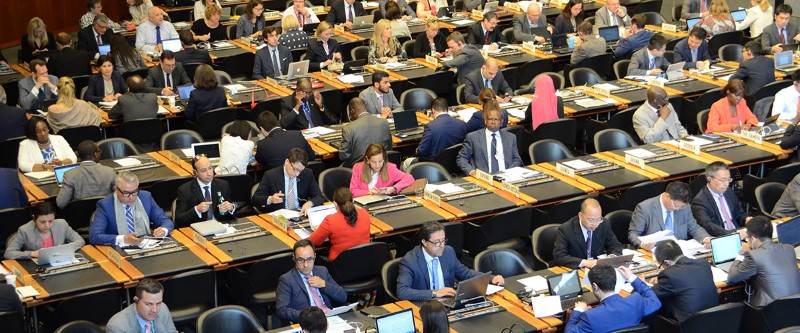Statement on the Selection of New Appellate Body Members:
A well-functioning dispute settlement system is of essential interest to Norway, and Norway is still deeply concerned about the situation in the Dispute Settlement Body. It is imperative to quickly and continuously fill empty seats in the Appellate Body. There should be no doubt that we need a well-functioning dispute settlement system in the WTO.
As stated on previous occasions, Norway remains open and willing to listen seriously and engage constructively with all and any member on their grievances with the system, including procedural issues relating to the Appellate Body. However, we are not willing to let the search for solutions put the system at risk.
We encourage all WTO Members to work together and show flexibility and commitment to find solutions to surpass this deadlock. We therefore again urge all members to contribute to preventing a crisis in the Dispute Settlement Pillar, and to agree to launch the process of selecting new members of the Appellate Body without any further delay.
Statement on the Section 232 Investigations and Measures on Steel and Aluminium Products
Norway is deeply concerned about the tariffs imposed by the United States on steel and aluminium products following the Section 232 investigation by the Department of Commerce. Aluminium and steel represent a significant share of Norwegian exports. We are therefore fully aware that overcapacity in these sectors is a real and pressing concern.
Norway stands ready to cooperate closely with all WTO members in correcting this situation. We agree with the United States that sources of large overcapacity, such as China, need to do more to correct the current situation. However, protectionism is not the answer. Particularly not protectionism dressed up as national security, which could be truly damaging to the multilateral trading system.
Chair,
This is not a bilateral issue, or a single WTO member issue. It is a multilateral issue. How each of us respond, impacts on our multilateral common ground; the wellbeing and rules of this organisation that we have all signed up to.
We are concerned about recent reports of alleged negotiations aimed at granting individual country exemptions to steel- and aluminium tariffs, at the cost of agreeing voluntary export restraints or similar measures on the export or import side. Such measures are not merely a violation of WTO rules. They represent a fundamental setback and reordering of the principles of international trade cooperation, implicitly accepting an order where “might” equals “right”.
There will always be a temptation for each to do what they can in order to offer respite to their people, workers and industries. However, we should all be aware of the costs. If we accept to walk down this path, we will likely find that our reputations in the WTO will be the least precious thing that is lost.
